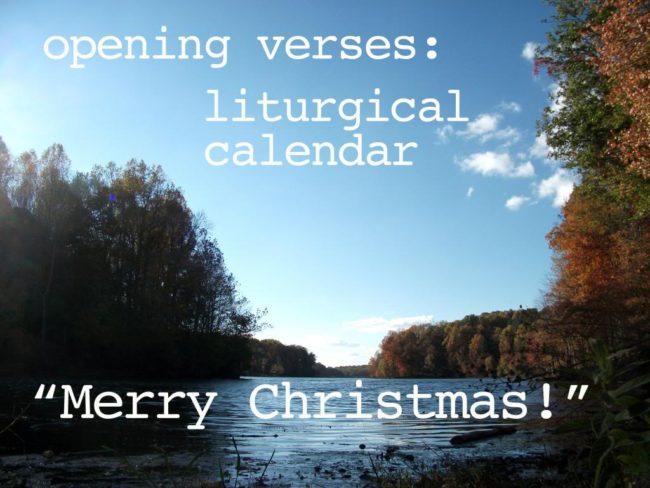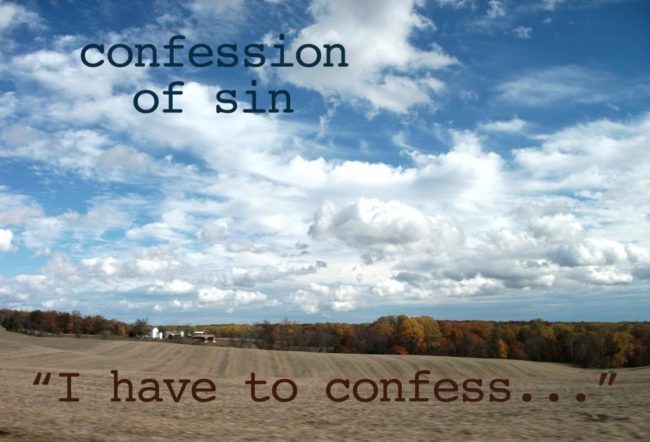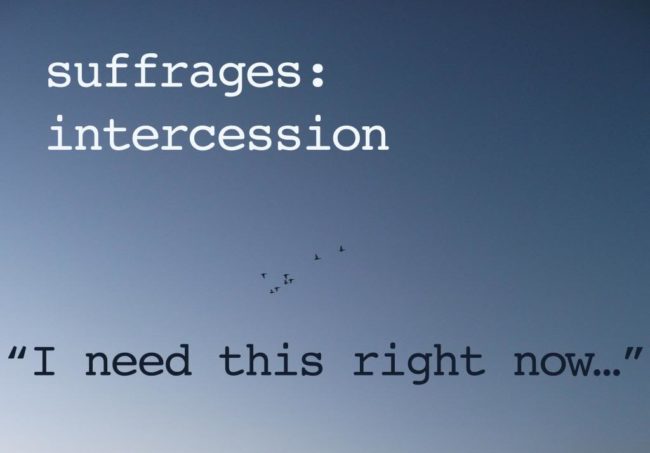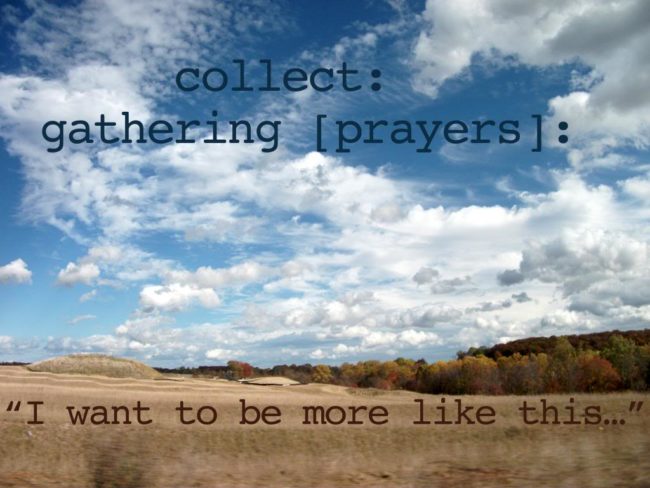
Hi friends! I’m so happy that it’s early November, with a tiny bit more time to write and walk through swirls of red maples leave in the chilly Autumn winds. Here in the Rogers Hays household, we’re officially at the one-month mark until Evan is finished with his student teaching. Hooray! It’s also been a whole weeks since my tiny charge’s parents have come home, and it’s been a very happy return for all involved. Evan and I have been able to sneak away for a number of long hikes on Friday afternoons and Sundays before Church. We love our hikes.

When we last left off on our prayer book adventures in September we explored why I love the liturgy and took a few weeks to explore some of my favorite resources, and looked at a prayer for Michaelmas. Today we’re going to take a little tour of some of the major components of a prayer in the Book of Common Prayer.

Part of what is intimidating about navigating a prayer book is the foreign terms. Many terms originated in Latin or Greek or Old English as a simple straightforward description, but now they have a special liturgical meaning. It’s a bit like how the ballet term “plié” comes from the French word meaning “to fold” but now when we use it in English, it is more like “bend your knees in a controlled way directly over your turned-out feet.”

Or for a more personal example, for reason still unclear to me, my parents always referred to the dirt or dried food on your face or clothes as “Schmutz.” For years, until college really, I just thought that “Schmutz” was just a word for the kind of dirt that ends up on your face or clothes. It turns out, it’s just the regular German word for “dirt.” But words move like that. We import words into English not only with their denotation (what they meant in their original language i.e. “bend” or “dirt”) but also often with a connotation unique to the situation in which we encounter the term (what we associate the word with, like dance class, or my parents trying to rub off dried egg from my face).

When you join a dance company (or my family), to have a fluent conversation you’d have to learn and decode some special terms that are meaningful. The high church liturgical family is no different. The terms, “Lent,” “Advent,” and “Epiphany,” are from Old English, Latin, and Greek, respectively, that used to just mean “springtime,” or “coming,” or “illumination.” But when we use them now, they mean “the special springtime fast before Easter,” or “the special season of waiting for Jesus’ coming,” or “the special season of celebrating the light and illuminating power of Christ in the world.”

Really the Liturgical form is in many ways just a special kind of conversation with special family terms. The Morning, Midday, Evening, and Nighttime forms have many of the hallmarks of the conversation you’d have with a good friend or family member. There is a greeting, affirmations of affection and care, listening to stories, confessing secrets and mistakes, sharing hardships, and leaving strengthened for the tasks ahead.

Most liturgical prayers begin with an opening verse from Scripture appropriate to the season. (“Verse,” and it’s diminutive “versicle,” comes from the Latin, meaning “a line of writing.”) This is a bit like saying “Merry Christmas” instead of “Hi,” when you arrive at a friend’s house for a Christmas Party. It is a way to indicate the season and that you would like to start a conversation.

Often the confession of sin will follow the opening verse. Not every conversation we have with friends or family is going to have a time when we address a break in the relationship or confess something, but all true and deep relationships are going to have times when you have to take responsibility for neglect and wrongdoing and repair the relationship. Since our relationship with God is the deepest, the writers of the liturgy have a place for us each time to acknowledge the ways in which we’ve missed the mark.

Following the confession there is a call and response, back and forth, called the antiphon(s). Antiphon comes from the Greek meaning sounding in response. These verses/versicles are often from the psalms and focus on the goodness of God. I like to think of this as the back and forth in our regular conversations in which we directly say or imply, “It’s so good to see you!”

From the antiphon we often move into the Psalter. The Psalter is a term for the collection of 150 psalms, or sacred songs, found right in the middle of the Bible. Depending on the length of the prayer, there can be a first “invitatory” psalm, an appointed psalm of the day or week, and one or more lessons from other sections of Scripture. During a Sunday service this is where the sermon is. I like to think about this section as the story-time portion of a conversation, or the “Let me hear about you!” part.

Following the reading of the psalms and lessons there is a canticle. A canticle comes from the Latin meaning little song. Canticles are 21 songs from Scripture other than the psalms or from similar non-Scriptural ancient Christian hymns. And unless you’re in a musical, you probably don’t break out into song when talking with good friends, but you might exclaim when they do something you love, “Oh I love this about you!”

The shorter second half of liturgical prayer begins with the recitation of a creed. Creed comes from the Latin term “I believe.” There are three standard creeds, or historical statements of belief, the Apostles Creed, Nicene Creed, and Athanasian Creed (a little less common than the first two). They contain the basics and important aspects of the nature of God. We are saying we believe in God, and this is the core of who God is. We do this when we are talking with friends sometimes too. “This is who you are, and I believe in you.”

Following the creed we move into the suffrages. Like the antiphon, it’s a call and response, but suffrage, meaning intercession, is about requests and needs. (This is similar to the way we use the term to describe the right to vote.) Here is where we begin to place our requests before God, to tell him what we need. We often tell a friend what we need both in a general sense to be honest about what is hard in our lives, but also because we trust and believe that those who love us often can aid and support us in our times of trial.

Another type of request is called the collect (pronounced with the emphasis on the first syllable). The collect is a short prayer, usually with 5 phrases, that comes from the term in Latin for the gathering. It’s usually a plea for us to keep the faith and become more like and trusting in God. It’s similar to when we declare to our friends, “I want to be more like this.”

Nearly at the close, we offer Prayers of Thanksgiving. We thank God for listening and for taking care of us and being who he is. We do this when we are ending conversations. “Thanks for talking!” Or “Thanks for being you.”

Then just like the opening verses, the benediction is the way we say “Good bye.”“Benediction” comes from the Latin good and words, to speak good words or blessing over someone. In English our “Good bye” has some of that in its history since it’s thought to be a contraction of “God be with thee.” We’re receiving the Good words and blessing that will carry us away from the conversation into the good work that we need the strength to complete afterwards.

How have you found learning the strange terms of the liturgy? Does your family have any funny sayings that outsiders have to learn?

